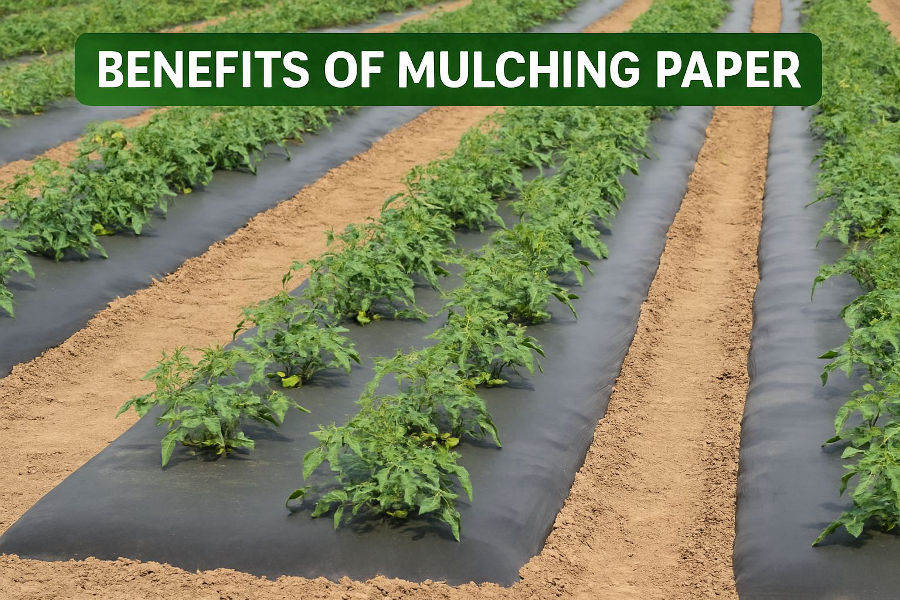Mulching Benefits in Vegetable Farming: Save Moisture, Increase Profit
Mulching is one of the most effective and low-cost practices in vegetable farming. It involves covering the soil surface around plants with organic or inorganic materials like straw, dry leaves, plastic film, or mulch paper. Though simple, mulching offers multiple benefits that directly impact crop health and farm profitability.
1. Moisture Conservation
One of the biggest advantages of mulching is its ability to conserve soil moisture. The mulch layer reduces water evaporation from the soil, keeping it moist for longer periods. This means farmers need to irrigate less frequently, saving both water and energy.
2. Weed Control
Mulching also suppresses the growth of weeds by blocking sunlight. Fewer weeds mean reduced competition for nutrients and water, and less labor required for weeding. This results in better crop health and lower maintenance costs.
3. Soil Temperature Regulation
Mulch acts as an insulating layer, keeping the soil cool in summer and warm in winter. This creates a more favorable environment for root growth and improves nutrient uptake, leading to healthier and more productive plants.
4. Improved Soil Health
Organic mulches, like crop residues or compost, decompose over time and improve soil structure, add organic matter, and support beneficial microbes. This contributes to long-term soil fertility and sustainability.
5. Cleaner Produce and Reduced Disease
Mulching prevents direct contact between vegetables and soil, keeping the produce cleaner. It also reduces the risk of soil-borne diseases splashing onto leaves and fruits during irrigation or rainfall.
6. Increased Profitability
With less water usage, lower labor costs, healthier crops, and improved yields, mulching directly contributes to higher profits for farmers. It is especially useful in vegetable farming where clean, uniform, and high-quality produce fetches better prices.
